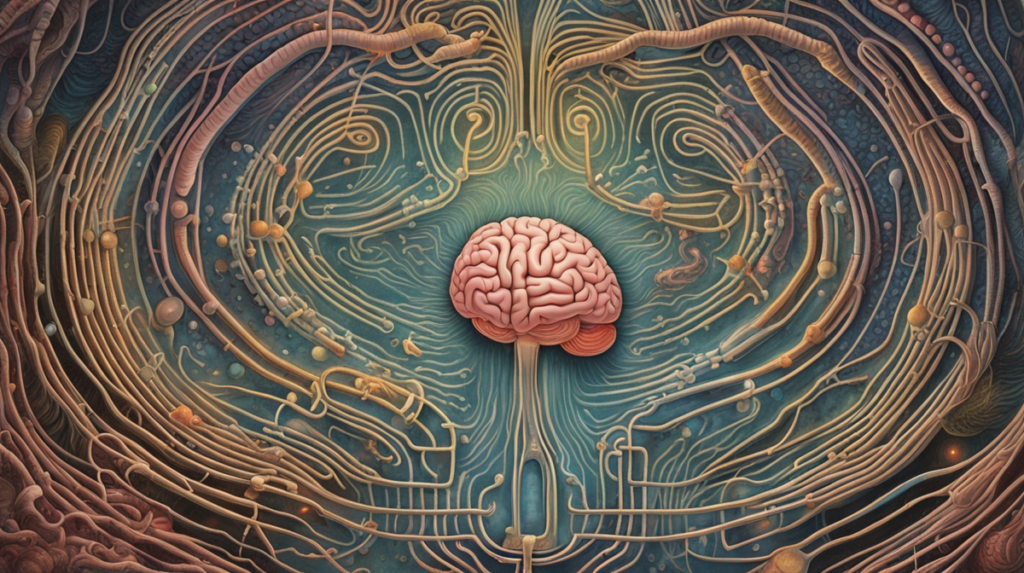Introduction
In recent years, the connection between the gut and the brain, now widely known as the gut-brain axis, has captured mainstream attention. This line of research explores how your gut health might exert influence over your psychological wellbeing. In this article, we delve into the intriguing gut-brain connection and discuss practical steps you can take to enhance your gut health and potentially bolster your mental wellbeing.
The Gut-Brain Connection Explained
The gut-brain connection refers to the two-way communication link between the digestive system and the brain. The enteric nervous system, often called our second brain, is a complex network of neurons lining our gut from esophagus to rectum. Recent studies shed light on how changes in the gut microbiome can affect this system, and indirectly influence our cognition and emotions.
The gut microbiome refers to the trillions of microorganisms residing in our intestines, and its balance plays a vital role in our overall health. Modern research reveals that these gut microbes might influence brain health through a variety of mechanisms, including the immune response, the vagus nerve, and microbial metabolites like short-chain fatty acids.
(Read Also: From Clutter to Clarity: The Health Impact of Decluttering Your Space and Mind)
Role of Gut Health in Mental Wellbeing
Many scientists believe that an imbalanced gut microbiome, dysbiosis, could lead to various physical and mental health issues. Conditions such as depression, anxiety, and neurodegenerative disorders have been linked to gut health.
For instance, studies have found that people suffering from major depressive disorders often show different gut microbial patterns compared to healthy people. While causation remains unproven, the consistent correlation suggests a relationship worthy of exploration.
Moreover, numerous studies have demonstrated the influence of certain gut bacteria in producing neurotransmitters like serotonin and dopamine, which regulate mood and emotions. Dysbiosis could disrupt the production of these important chemicals, potentially leading to mental health issues.
Controversies and Debates
Despite mounting evidence, the extent of the gut-brain connection and its implications for treatment remain hotly debated in scientific research. While research supports a connection, the complexity of both the gut microbiome and the human brain makes it challenging to establish definitive, causative links.
Critics argue that many studies are conducted on animals, and it’s not always accurate to extrapolate these findings to humans. Moreover, understanding the gut microbiome is in its infancy, and it may take a substantial time to fully grasp this intricate relationship.
(Read Also: Mindful Eating: A Nourishing Path to Enliven Your Body and Soul)
Improving Gut Health for Better Mental Wellbeing
While the scientific community continues to debate, there is a general consensus that maintaining a healthy gut microbiome is beneficial for overall health, potentially including mental wellbeing.
A diet rich in fiber and fermented foods, regular exercise, adequate sleep, and stress management techniques can all contribute to a healthier gut. Probiotics and prebiotics have also been found to improve gut health by promoting beneficial bacteria and inhibiting harmful ones.
Always consult with healthcare professionals before starting any new treatment approach to your mental or physical health.
Conclusion
The intriguing interplay between gut health and the brain opens a new frontier in healthcare and wellness. While we wait for more comprehensive research to unravel the intricacies of the gut-brain connection, maintaining a healthy gut through a balanced diet and lifestyle remains a proactive way to enhance overall wellbeing.

